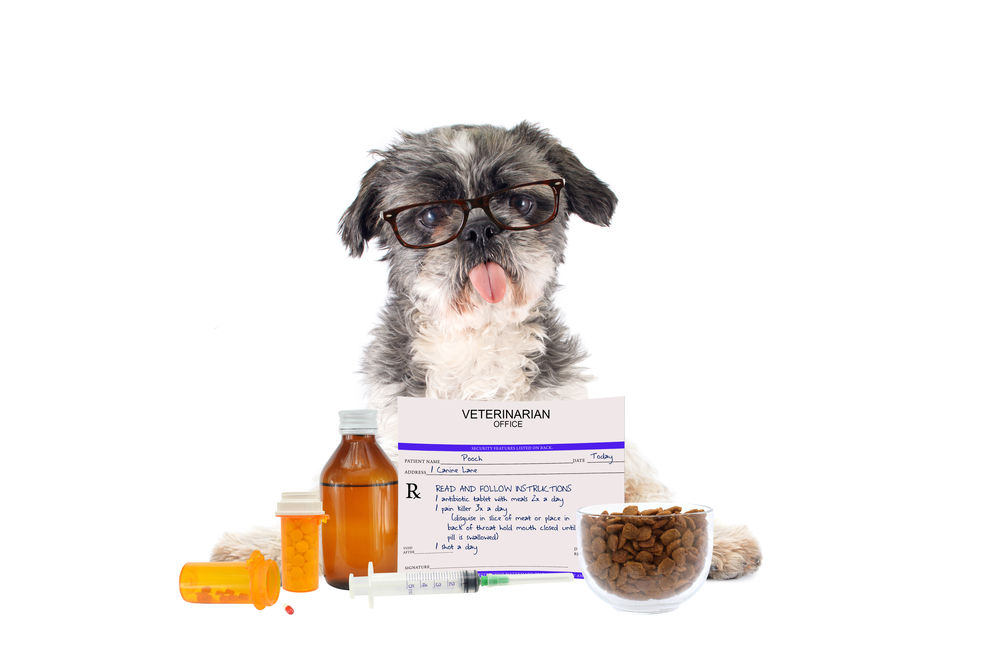Pet Owners: How to Dispose of Unused Medications

Pet medications are becoming more common to combat illness, infection, allergies, and even behavioral or anxiety issues. Sometimes pet parents find that they have a surplus of unused medications and no idea what to do with them. These medications could be dangerous if not taken care of properly. If you are looking to dispose of unused medicines, Oakland Veterinary Referral Services has a few tips for you:
Pet Medication Basics
Before we dive into how to dispose of unused medications, we want to be sure to cover some of the basics of giving your pet medication. If your veterinarian prescribes antibiotics for an infection, it is important to complete the course to make sure they can work effectively. And you shouldn’t stop giving your pet a medication just because they seem to be feeling better unless you run that by your veterinarian.
Always check with your veterinarian as well before giving your pet any kind of medication– especially those made for humans or that have passed their expiration dates. Expired medications for life-threatening conditions like diabetes or heart conditions can be dangerous.
Also, while it is fine to hang on to medications that haven’t expired, check with your veterinarian before administering the medication for a new complaint. It may do more harm than good.
If you ever have any questions about dosage or medication safety, please do not hesitate to reach out to ensure you administer it as safely as possible. We would much rather you call and ask us than to give your pet something before knowing it is safe.
The Don’ts of Disposing of Unused Medications
Medications have pharmaceutical ingredients that could be dangerous for other animals (and humans) if not properly eliminated. When getting rid of unused medicines, be sure to avoid the following:
- Flushing or pouring them down the drain or toilet: septic systems cannot properly break down all ingredients, which could send the medication into the water supply.
- Bringing the unused medication to your veterinarian unless they are approved federally for disposal. Call to ask before you go in if you are unsure.
- Throwing them in the trash with personal information visible. Someone could pull this personal information off a pill bottle and use it to steal your identity, or an animal could get into the leftover medication.
Taking a little precaution with your unused medications can keep people and animals in your area safe.
Safe and Effective Medication Disposal
Most areas have safe drug disposal programs that will deal with the disposal for you. Here’s a list of some of the drug take back programs throughout Michigan. You can also ask your veterinarian for recommendations on the safest way to dispose of the medications.
If someone recommends that you throw the medication in the trash, be sure to remove or black out any personal information (name, address, and even your pet’s name). You should leave all of the information about the drug itself visible, though. We recommend that you also add coffee grounds or kitty litter to the bottle to make the medicine unattractive to an animal or small child that might rummage through the trash for treats. It is also best to wait as close as possible to your trash pickup time.
Can You Donate Unused Pet Medication?
Many non-profit animal shelters will accept medication donations, especially those for basics like heartworms, or fleas and ticks. Check with the shelter to be sure they are accepting unused medication donations before taking them in.
At Oakland Veterinary Referral Services, we work hard to make sure our clients know the safest way to use medication to help their pets with their ailments. That includes knowing what to do with unused medications. Our veterinary specialists are here to help you find the right treatment for your pet. To learn more about our services or to ask about certain medications, please call us at (248) 334-6877.


